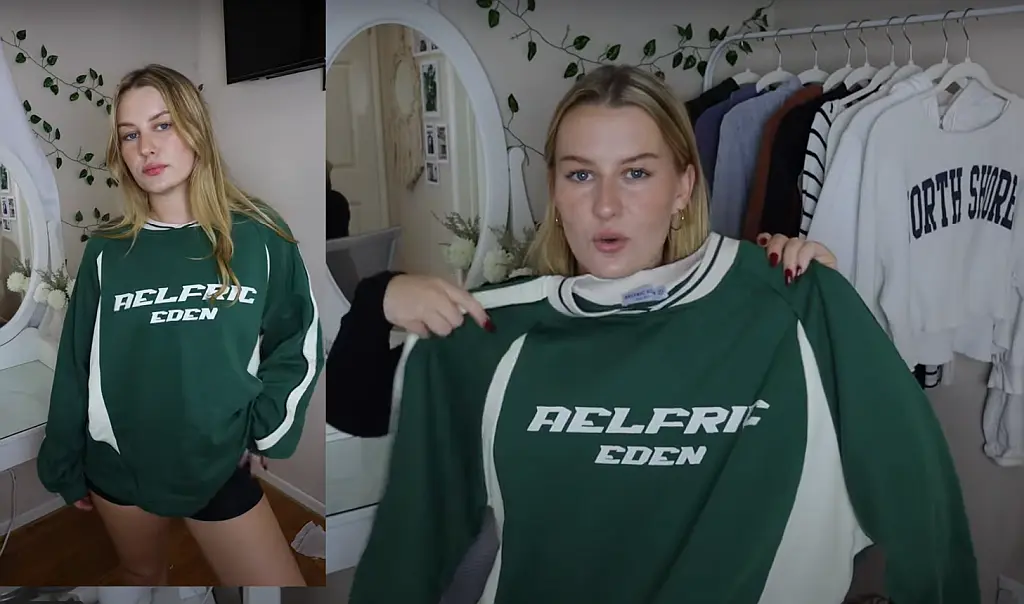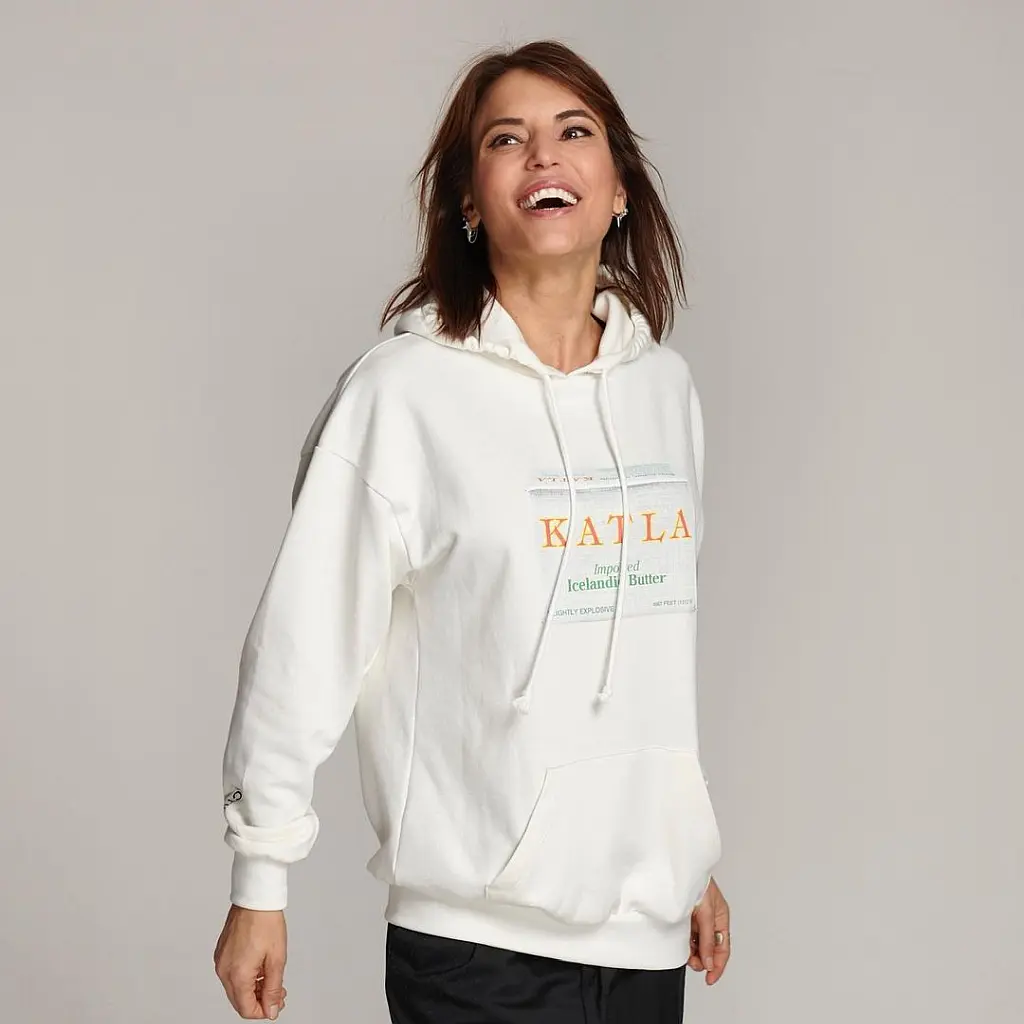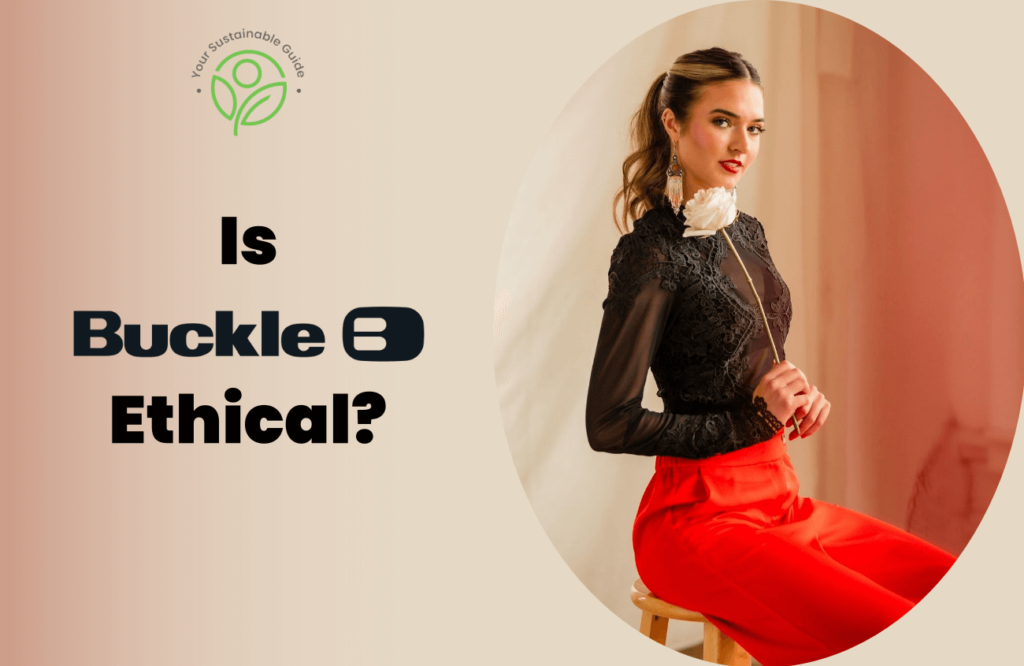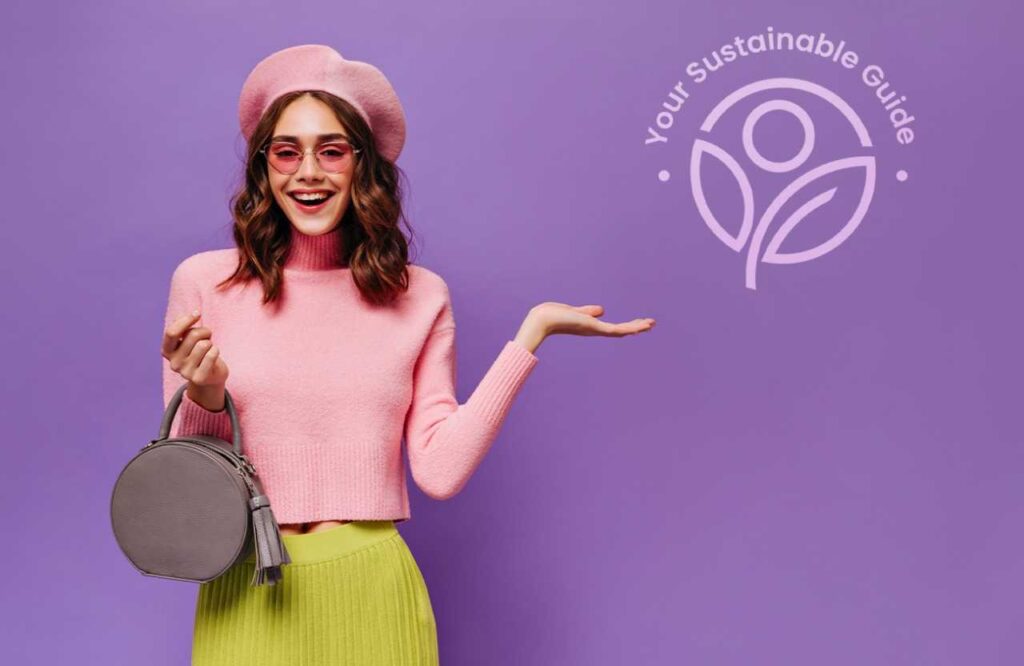Aelfric Eden has gained fame among the youth for its edgy and trendy streetwear. Integrating diversity and inclusiveness, it blends street elements such as skateboarding and graffiti and transforms them into fashionable apparel. However, it operates at a lightning-speed production level and never misses what’s trending! Plus, no one knows where its garments are actually manufactured. Does that mean Aelfric Eden is a fast fashion brand?
Aelfric Eden’s lack of transparency and potential inconsistencies suggest it doesn’t align with ethical and sustainable standards. The label might be dedicated to attracting global youth but is it committed to lower its impact on the planet and the people? Let’s assess Aelfric Eden in depth to understand its sourcing practices, manufacturing ethics, and sustainability efforts.

Is Aelfric Eden Fast Fashion?
Yes, Aelfic Eden is fast fashion. Its approach aligns closely with the characteristics typically associated with the fast fashion business model. The label prioritises the swift production and distribution of funky styles at relatively low costs. And the product categories are literally swarming with collections.
Moreover, coupons or discounts are available on its website throughout the year, tempting shoppers to buy more. Some items even flash ‘Buy One Get One Free’ deals, which is a winner among people looking to save some bucks. For instance, if you buy a sweatshirt, you can get the pants or a similar sweatshirt for free.
As the label primarily targets the youth, these crazy deals really make it popular among the street-style community. Gen Z mostly prefers cool clothing at super-affordable prices, so Aelfric Eden’s promotional strategies work well to tempt them.
Now, as Aelfric Eden’s relies on dropshipping as well, it sources products from third-party suppliers upon receiving orders. This allows the brand to swiftly introduce the latest street-style fads to the market within a shortened production cycle. The platform’s reselling strategy further proves its association with fast fashion.

Is Aelfric Eden Ethical?
No, Aelfric Eden cannot be considered ethical. Reasons? It doesn’t disclose details about its sourcing practices, production facilities, factory conditions, and labor rights standards, which are crucial in determining its ethicality. The only information available on its website is that some of its own factories are located in Asia. And that’s it!
Labor Practices
Aelfric Eden doesn’t have a Code Of Conduct that reflects the label’s stand towards forced labor, fair wages, workplace safety, freedom of association, and other labor rights issues. Additionally, it doesn’t maintain transparency by sharing the list of its own production units and third-party sellers. Therefore, it’s hard to contemplate if these factories observe fair trade policies or if the workers are treated humanely.
Now majority of its merchandise are made in China since the owner of the trademark has strong ties with the country. Besides, China is the hub of cheap manufacturing, which is why most fast fashion brands rely on it.
With Aelfriec Eden’s silence over its supply chain and its production taking place in developing Asian countries, the chances of unfair trade practices rise. This streetwear company might just be one of those brands that use sweatshops, exploiting underprivileged people for milling profit.
Sourcing Practices
A good proportion of Aelfric Eden’s collections are manufactured in its own design-and-manufacture facilities. But it is also associated with dropshipping, where products are sourced and resold from independent sellers and marketplaces like Ali Express.
While dropshipping isn’t inherently unethical, Aelfric Eden’s lack of clarity raises suspicions. Its website emphasizes accessibility and affordability by eliminating middlemen. That might sound promising, but how do we know if products are sourced from fair trade factories? Or where exactly are these facilities located? Its the brand’s level of secrecy that is concerning, making it difficult to fully assess its ethical practices.

Child Labor
As of now, there is no evidence indicating that Aelfric Eden uses child labor. However, due to the brand’s limited transparency around its supply chain, concerns about poor labor conditions have been raised.
Since it doesn’t monitor its factories, there’s no telling what’s going on behind those closed doors. The worst thing is, it doesn’t even have policies to address the pressing issue of child labor in fast fashion brands.
With its manufacturing units based primarily in Asian countries like China, the possibility of employing minors cannot be overlooked. That’s because labor laws in these countries neglect human and labor rights.
Overall Rating: 1
Is Aelfric Eden Cruelty Free?
Aelfric Eden doesn’t have an animal welfare policy. The company doesn’t address any issues related to reducing animal suffering in the fashion industry.
However, upon thorough inspection of its collections, we found that most of its garments are made from animal-free materials. While there is no information if the company intentionally uses animal-free textiles, it’s certainly a positive aspect.
Overall Rating: 3

Is Aelfric Eden Sustainable?
No, Aelfric Eden is not sustainable. It produces garments at breakneck speed and fills the markets with trendy styles priced at rock-bottom rates.
The brand uses throngs of unsustainable fabrics like polyester, acrylic, nylon, and PU leather, in its clothing range. These materials consume a lot of limited resources, involving harmful chemicals, high water use, and significant CO2 emissions in their production. Moreover, they don’t break down for decades as they are non-biodegradable.
Aelfric Eden doesn’t implement a ‘Repair or Take back’ policy, neglecting responsibility for its worn-out clothing. This practice leads to volumes of garments overflowing the landfills and polluting the planet. However, the label gladly overlooks essential steps to control textile waste.
To make matters worse, Aelfric Eden has no sustainability targets for reducing greenhouse gases, adopting eco-friendly materials, or recycling wastewater in its supply chain. Such negligence amplifies the environmental impact of fast fashion. So, all in all, this street fashion company does nothing to minimize its carbon footprint.
On a philanthropic foot front, Aelfric Eden claims to have partnered with a non-profit where it donates to a child in need for every item sold. But then, there is no proof to back this statement.
Overall Rating: 1
Some of the Best Sustainable Alternatives to Aelfric Eden
Much like Aelfric Eden, several fast fashion brands exhibit concerning practices. Renowned labels like Zara, Cider, Fashion Nova, and more have faced criticism for their untraceable supply chain and ecological footprint. From encouraging a disposal culture to compromising ethical policies, they continue to leave a negative impact on people and the planet.
But affordable sustainable clothing brands give us hope for a sensible apparel industry. So, if you love street-style fashion but want to do it the sustainable way, then check out Afends, CHNGE, Plant Faced Clothing and Katla.
1. Afends

Afends is a sustainable Byron Bay clothing label that advocates for responsible street fashion. Providing cool styles for both men and women, the brand focuses on eco-friendly fabrics, particularly hemp. Their admiration for hemp is so deep that they have a dedicated ‘Hemp Revolution‘ product line with plans to grow their own Hemp harvest. Afends prioritizes fair trade and transparency, ensuring respectful treatment and fair wages for its workers. As a mindful Australian brand, it lists all suppliers and traces each product from the initial production stage.
2. Plant Faced Clothing

Plant Faced Clothing creates unisex streetwear that are cruelty-free and ethically produced. Its gender-neutral collection includes trendy t-shirts, hoodies, sweatshirts, and pants that will keep you snug at all times. Using fully vegan materials and water-based dyes, the brand prioritizes affordability and sustainability. With global shipping, over 75% of their products use low-impact materials like certified organic cotton and recycled plastics. Committed to fair trade, Plant Faced Clothing collaborates with certified Fair Trade factories, prioritizing workers’ well-being and holistic development.
3. CHNGE

CHNGE sustainably represents edgy street designs for conscious fashion lovers. Its collection of thoughtfully designed clothing with cause-oriented messages resonates highly with the modern generation. CHNGE’s ethos centers on sustainability and ethics, crafting garments from GOTS-certified organic materials and adopting fair labor practices. With a focus on comfortable everyday wear, the brand offers an array of t-shirts, hoodies, and casual essentials. Embracing responsible business practices, CHNGE donates to various environmental and social causes. The Climate Neutral brand’s offerings are accessible at affordable prices, inviting individuals to wear their values with pride.
4. Katla

Katla celebrates the fusion of beauty and nature, catering to conscious people seeking timeless style with an eco-conscious edge. Drawing inspiration from Iceland’s raw landscapes, Katla crafts its edgy hoodies and sweatshirts using eco-friendly vegan fabrics, adhering to zero-waste principles. Established with a mission to redefine modern aesthetics, the brand pioneers sustainable practices that harmonize with the future. With effortless silhouettes, Katla merges style and sustainability, establishing a new industry standard. From its inception, Katla’s practices honor the land, wildlife, and people, ensuring that every piece resonates with ethical values and contemporary flair.







